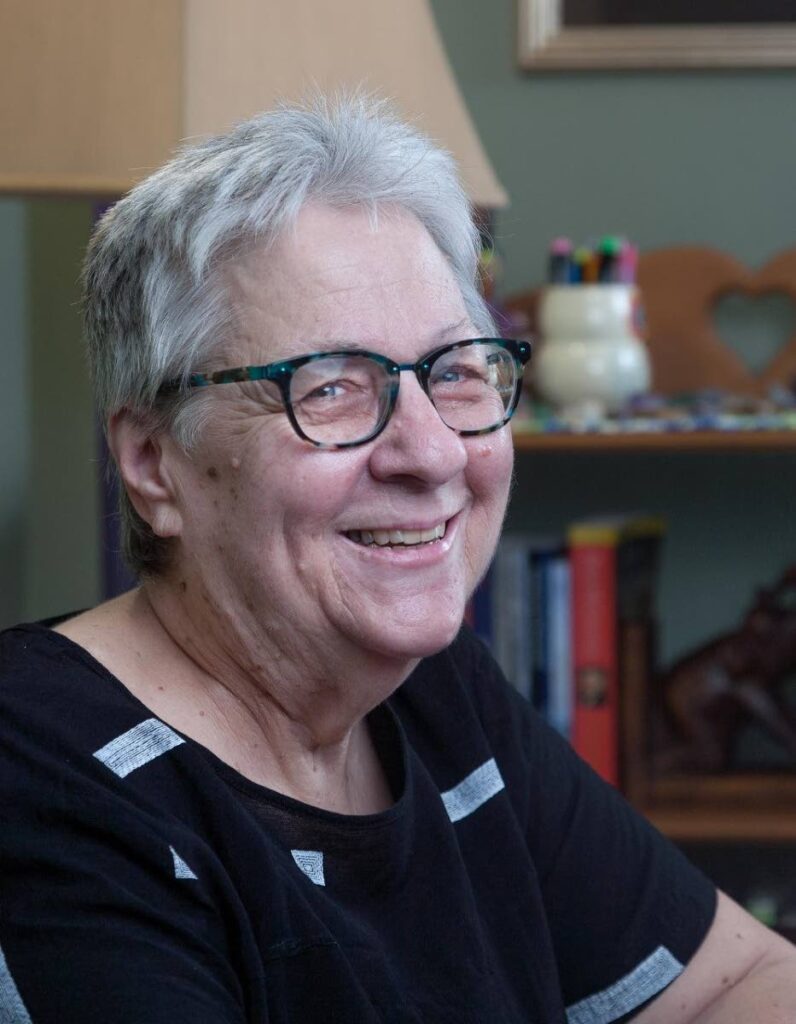My case for Donnell Inniss

DEBBIE JACOB
WHEN THE news popped up on my computer that the High Court had found Donnell Inniss not guilty of murder, I felt an overwhelming sense of relief that an unjustified long wait for freedom was over. Inniss, one of my former students in Port of Spain Prison, spent 13 years and six months in remand waiting for his day in court.
During that time, he became one of the most remarkable people I have ever known. It is a rare soul that finds ways to look beyond his own situation and finds a sense of purpose in prison. Donnell was one of those exceptional people. I thought of him as the inmate whisperer.
He was the person called upon to quell emotional outbursts in inmates. I witnessed this myself when he calmed down inmates coming back to prison after court. Those inmates often looked like they were returning from war. Limping and crying out in pain from being beaten in the holding cells and frustration from having their cases postponed, they passed by our classroom just inside the prison.
When it became obvious prison officers couldn’t calm them down, students in my class said, “Donnell, go and handle that.” Donnell would leave the class and silence the inmates in less than a minute.
He worked his magic on me too. I experienced two earthquakes in Port of Spain Prison and Donnell kept me calm. His capacity for handling prison crises was an extraordinary gift.
In prison, men and women often become bitter or broken, but Donnell became a beacon of hope in a dismal space. His empathy and sense of fairness earned everyone’s respect.
He participated in my prison debates. In the first one, he persevered with noticeably shaking hands. Afterwards he said, “I was nervous, but I will do better next time.”
Giving up was never in Donnell’s mind. I asked for him to be part of the research team because he could create exceptional arguments to support crucial points. He was the motivator and the anchor of the Port of Spain debate team, a talented but fractious group. Donnell created the cohesion they needed and helped to build confidence.
He was the first inmate to explain to me how the streets work in murder cases. Often rival gangs target and accuse someone of a crime. Call a name for the police, spread the word so many people call the same name and when the person gets charged for murder it’s going to take over a decade for the case to be heard all the way up to the High Court. By the time everyone discovers the eyewitness account doesn’t match the forensic evidence, someone has spent over a decade in prison.
There are so many stories about how Donnell transformed my class. In one case I asked for an inmate to join in without realising the implications of that decision.
“We don’t even let him on the same floor as the students in your class,” a prison officer told me.
My class rebelled and said they would not accept the student I chose. Donnell said, “It’s Miss’s class. Let her give him an assessment and if he passes, we’ll have to accept that.”
I gave him an assessment, which he easily passed.
The prison officers warned me about trouble and told me a fight would break out in class, but there never was an issue. The new student was accepted and became a crucial part of the debate team. Donnell facilitated that transition and created an atmosphere for acceptance. We all trusted Donnell’s instincts.
Whenever I didn’t understand someone, Donnell explained the person to me in a way I could never see for myself. His ability to understand and explain people’s motives for the way they acted always surprised and enlightened me. He was never judgmental.
He always said, “I believe in fairness.”
There are few people I have known who have been a victim of prejudice more than Donnell, but he always rose above injustice.
If you think that everyone thrown into prison for a crime is guilty or unworthy of our respect, think again. This country has a way of failing young men and casting them aside instead of trying to understand and learn from them. Donnell offers many invaluable lessons in compassion, tolerance, fairness and faith. I learned those lessons in prison. Thank you, Donnell, for helping me to be a better person.

Comments
"My case for Donnell Inniss"